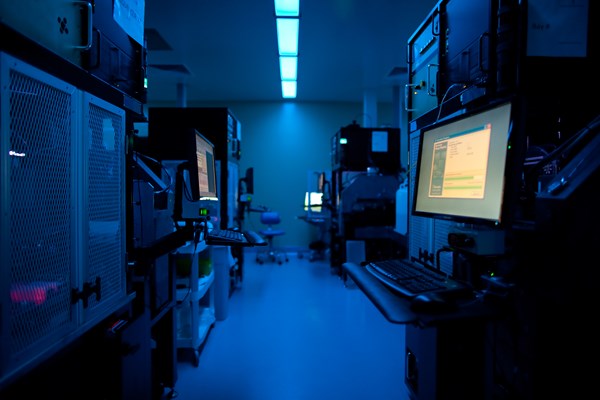MOUNTAIN VIEW, Calif., Sept. 30, 2013 (GLOBE NEWSWIRE) -- Complete Genomics, Inc. (formerly NASDAQ: GNOM) ("Complete"), a wholly-owned subsidiary of BGI-Shenzhen, a leading international genomics organization based in Shenzhen, China, today announced that its highly-accurate whole genome sequencing technology played a pivotal role in identifying a point mutation that causes Prader-Willi Syndrome (PWS). That discovery helped resolve a diagnostic conundrum for four young male patients. These data were published today in Nature Genetics.
A photo accompanying this release is available at http://www.globenewswire.com/newsroom/prs/?pkgid=21224
PWS is a rare genetic disorder that causes poor muscle tone, low levels of sex hormones, and a constant feeling of hunger, according to the Eunice Kennedy Shriver National Institute of Child Health and Human Development. As a result, people with this condition tend to overeat, leading to obesity.
The first patient in this study was tested for PWS when he was one year old, but the result was negative. Over the next 12 years, he began to manifest some, but not all, of the typical PWS symptoms.
Then the patient met with paper author Dr. C. Thomas Caskey, who was director and chief executive officer of the Brown Foundation Institute of Molecular Medicine for the Prevention of Human Diseases, part of the University of Texas Health Science Center at Houston. Dr. Caskey has since joined Baylor College of Medicine as professor of molecular and human genetics.
It was Dr.Caskey who referred the patient to Dr. Christian Schaaf, an assistant professor of molecular and human genetics at Baylor College of Medicine, and faculty member at the Jan and Dan Duncan Neurological Research Institute at Texas Children's Hospital, a co-lead author on the paper. Dr. Schaaf evaluated the patient and confirmed the earlier findings. Dr. Schaaf then used Complete's highly-accurate whole genome sequencing service to determine the genetic basis of his patient's symptoms.
Those sequencing results were reviewed by fellow co-lead author Dr. Manuel L. Gonzalez-Garay, an assistant professor and a bioinformatics expert at the University of Texas Health Science Center at Houston's Brown Foundation Institute of Molecular Medicine for the Prevention of Human Diseases. Dr. Gonzalez-Garay identified a single mutation, a base deletion, on the protein-coding MAGEL2 gene in a section of chromosome 15 that had been previously linked to PWS. It proved to be a frame-shift deletion mutation in a difficult to sequence GC rich region, which disrupts the activity of the MAGEL2 protein product.
As MAGEL2 is only expressed on the paternal gene, it was important to determine whether the mutation was on the maternal or paternal version of chromosome 15. In this case, the MAGEL2 mutation was confirmed to be on the paternal gene using a modified version of Complete Genomics' Long Fragment Read technology.
To investigate MAGEL2's role in this disease further, the researchers reviewed more than 1,200 exome sequencing reports from the Baylor Whole Genome Sequencing Laboratory, searching for other patients with point mutations on that gene. They identified three additional patients – one had classic PWS and the other two had PWS-like symptoms. However, they all had negative PWS tests as infants. All four patients were also diagnosed with autism spectrum disorder and intellectual disability.
"This is the first study to show that point mutations can cause Prader-Willi Syndrome," said Dr. Schaaf. "This is an important development that increases our understanding of this complex disorder, and also gives four boys a diagnosis, which they and their parents have sought for many years."
"It also underscores the importance of being able to distinguish between maternal and paternal variants because only patients who had point mutations on the paternal copy of the MAGEL2 gene would experience the disorder," said Dr. Brock Peters, director of research at Complete Genomics, Inc.
PWS occurs in males and females equally and affects all races, according to the Prader-Willi Syndrome Association. Estimates of the incidence of PWS have ranged from 1:8,000 to 1:25,000 with the most likely figure being 1:15,000, it adds.
About Complete
Complete Genomics is a leader in accurate whole human genomic sequencing. Using our proprietary sequencing instruments, chemistry, and software, we have sequenced more than 15,000 whole human genomes for our research customers over the past three years. Our mission is to provide the technology for sequencing one million human genomes, enabling researchers and clinicians to improve human health through the prevention, diagnosis, and treatment of genetic diseases and conditions. Additional information can be found at www.completegenomics.com.
